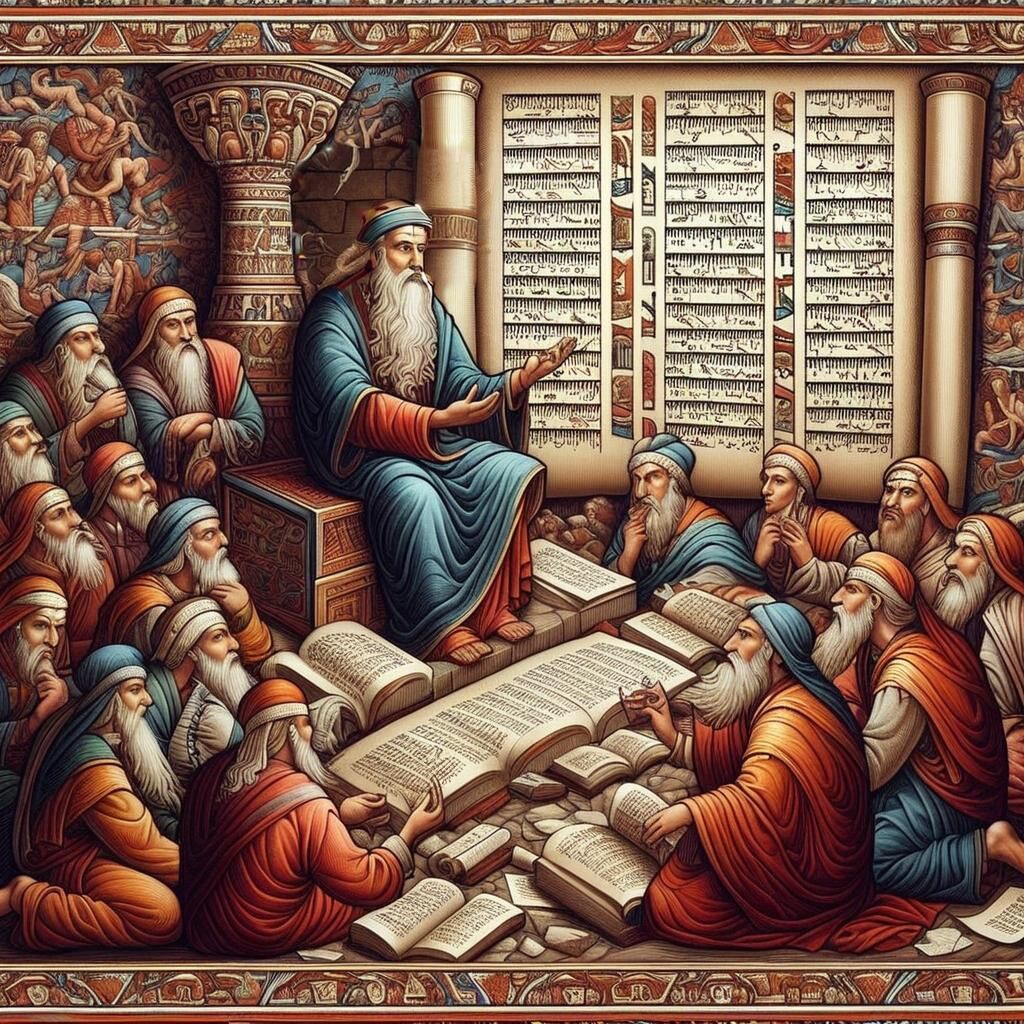Greetings, saints of the Most High! Welcome to another installment of the Messianic Torah Observer. Today, we delve into the intriguing topic of our Melchizedekian Priestly Pedigree, focusing on Jasher’s hidden chronicles.
In Part 3, we explored the theological implications of the Avram-Melchizedek encounter, discussing the dual offices of priesthood and kingship, the blessing conferred upon Avram, the significance of tithing, and the mysterious nature of Melchizedek. We also examined various religious perspectives on Melchizedek, including those from Catholicism, Islam, and Messianic Judaism.
Jewish legend and tradition often identify Shem, Noah’s righteous son, as Avram’s Melchizedek. However, there are several issues with this theory, including the lack of canonical biblical evidence and the improbability of Shem’s lifespan overlapping with Avram’s. Despite these concerns, the book of Jasher perpetuates this connection, presenting a narrative where Shem is indeed Avram’s Melchizedek.
Jasher’s account embellishes the biblical story, referring to Melchizedek as Adonizedek and describing a community meeting with Avram, bearing bread and wine. Interestingly, Jasher omits Melchizedek’s blessing of Yehovah, a curious detail given some ancient rabbinic opinions.
The narrative continues with Shem passing his prophecy school to Eber, his great-grandson, while the Melchizedekian priesthood is conferred upon Avram. This lineage, according to Jasher, includes notable figures like Adam, Enoch, and Noah, culminating in Avram.
However, the Jasher narrative raises questions about the authenticity and accuracy of these accounts. The Melchizedekian priesthood, as described in the Torah, operates outside biological heritage lines and temple sacrificial systems, foreshadowing the Spirit and Truth worship Yeshua spoke of.
Despite the conflicts between Jasher’s and the Torah’s accounts, we can glean significant insights into our Melchizedekian priestly pedigree. Concepts of righteousness, priestly conduct, obedience, and steadfast commitment to the faith form the foundation of our priestly calling. As students of Yahoshua’s Great School of Prophecy, we are in a season of training and preparation for our future roles in the Kingdom of Yehovah.
In conclusion, while I have my reservations about Jasher’s account, it offers valuable lessons about the godly elements that make up our Melchizedekian priestly pedigree. As we continue this series, we will explore these elements further, preparing us to serve as Melchizedekian kings and priests in the coming Kingdom of Yah.
May you be most blessed, fellow saints in training. Let us embrace our calling and prepare for the roles we are destined to fulfill.
Does Torah Cause Someone to Sin More? A Messianic Examination of Romans 5:20
Goal: This is “Does Torah Cause Someone to Sin More? A Messianic Examination of Romans 5:20.” And so, our survey of the hard-to-understand—those challenging Pauline passages—takes us in today’s installment of TMTO, to Romans 5:20. And the KJV...
Experiencing the Wisdom of God Persists Even in the Midst of Despair–STAR-37
This week's portion is the 37th-Reading of the 3-year Torah Reading Cycle (STAR-37). And it is a familiar passage. For it is the story of Yosef interpreting the dreams of the cupbearer and baker in the Egyptian prison. If we recall STAR-36, Yosef was cast into prison...
Amazing Things Happen When God is with Us–Torah Reading 36–The Story of Joseph and Potiphar’s Wife
Our Torah Reading for this Shabbat of 6/11/2022 is found in Genesis 39:1-23. It is The Story of Yosef and Potiphar's Wife. We find in this reading, themes of righteousness; trust; loyalty; prosperity; sexual immorality; favor-favor with man and favor with God; and...
Finding Peace with God-Eternal Life and a Blessed Assurance
This is “Finding Peace with God—Eternal Life and a Blessed Assurance.” This is a continuation of our Paul and Hebrew Roots mega-series where we’ve been discussing some of the more challenging—hard to understand Pauline writings. And we’ve been spending most of our...
The Story of Judah and Tamar: A Reminder that Yah’s Will Shall Already Triumph Over Humanity’s Carnality
This Week's Torah Reading #35--The Judah-Tamar Story This week's Torah Reading, number 35 in our three-year Torah Reading cycle, is found in Genesis/Beresheit 38:1-30. It is the story of Yehudah (aka Judah) and Tamar. It conveys tremendous spiritual lessons that...
Shavuot-Pentecost 2022 in Focus–Netzari-Messianic Perspectives on the Feast of Shavuot
1. An Introductory Primer on Shavuot What is Shavuot? For the Torah Observant Believer in Yeshua Messiah, Shavuot—The Feast of Weeks—Pentecost is about the giving and receiving of YHVH’s Torah and the establishing of the marriage covenant between YHVH and the Children...
The Inapplicability of Torah–Part 3 of Where There is no Law There is no Transgression
This is “The Inapplicability of Torah.” It is the final installment to our 3-part series within a series entitled “Where There is no Law There is no Transgression.” Because I have so much content to cover today and I’m led to bring this series within a series to a...
Where There is no Law There is no Transgression-Part 2-The Role of Torah in the World
Quick Review of Part 1 Our focus passage was Romans 4:11-15 with particular emphasis on verse 15: For Torah brings wrath, because where there is no law there is no transgression [of the law]. Unfortunately, denominationalists erroneously use this and related...
Where there is no law, there is no transgression: Part-1-The Difference Between Sin and Transgression of the Law
A Continuation of Where we Left Off Today, we sort of pick up where we left off in our previous Paul and Hebrew Roots series. If you recall from our last installments to this series, the so-called Apostle to the Gentiles asserted to his Roman readers that he fully...
The Exceeding Kingdom Qualifying Righteousness That Takes us from Passover to Tabernacles-Part 2–Maintaining our Righteous Garments
Goal I will be picking up from where I left-off from Part-1 of our last discussion entitled "The Exceeding Kingdom Qualifying Righteousness That Takes us from Passover/Pesach to Tabernacles/Sukkot.” Or rather, from Babylon/the world to the Kingdom. And if by...

